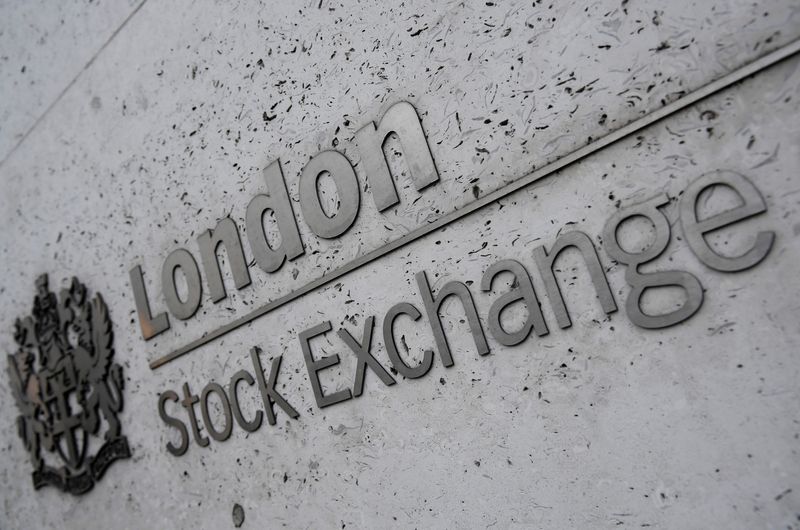By Dhara Ranasinghe
LONDON (Reuters) - World stocks hovered just off record highs on Wednesday after climbing for five straight sessions, while Britain's pound nursed heavy losses in the wake of renewed Brexit uncertainty.
Europe's stock markets edged higher, (STOXX) having taken a hit the previous session as Britain's Prime Minister Boris Johnson took a harder line on Brexit.
Earlier, Asian shares had drifted lower, with Japan's Nikkei (N225) dipping 0.6%, while China's stocks slipped (CSI300) even after Beijing trimmed another short-term interest rate.
U.S. equity futures (ESc1) (1YMc1) barely budged.
A run of better data recently has helped calm fears of a recession while the "phase one" Sino-U.S. deal on trade appears to have eased some of the uncertainty on the global outlook.
MSCI's world stock index (MIWD00000PUS) stood just off record highs. It has rallied almost 23% this year, set for its best year in a decade and the fourth-best year ever.
Upbeat economic news had helped the S&P 500 (SPX) reach a record for the fourth straight session on Tuesday, building on its 27% gain this year.
"I expect markets to end the year quietly but mildly positively, especially if the PBoC does nibble down the lending interest rate later this week," said Chris Bailey European strategist at Raymond James, referring to China's central bank.
"Bigger challenges naturally await for next year ... but I think traders and investors will be happier to grapple with these actually in 2020."
BofA Global Research's latest survey of fund managers showed that a record surge in global growth expectations over the last two months had drastically cut recession worries.
NOT SO FAST
But, it might be too soon to declare an all-clear on the political front. The Democratic-led House is on Wednesday expected to vote on two articles of impeachment charging U.S. President Donald Trump with abuse of power and obstruction of Congress for his dealings with Ukraine.
While few expect the Republican-dominated Senate to force Trump from office, the impeachment process could focus investors' attention on next year's U.S. election risks.
Newly-elected British Prime Minister Boris Johnson has spooked markets by taking a hard line on Brexit talks.
Johnson will use the prospect of a Brexit cliff-edge at the end of 2020 to demand the EU give him a comprehensive free trade deal in less than 11 months.
The threat of a hard exit sent shivers through sterling, which slid 1.5% on Tuesday in its largest one-day fall this year.
It fell another 0.2% on Wednesday and was last at $1.3114
"Johnson's move aimed at cancelling the possibility of an extension, has essentially increased the possibility of a no deal Brexit," said Rodrigo Catril, a senior FX strategist at NAB.
"It suggests sterling's path in 2020 looks set to be a volatile one, a hard Brexit cannot be ruled out, but the probability of a positive Brexit resolution has also increased."
The euro was a shade softer at $1.1134 (EUR=), while Japan's yen was little changed at 109.45 per dollar
The Turkish lira hit its weakest level against the dollar
It marked the lira's fourth day of falls. The Turkish currency has lost more than 11% this year after a currency crisis chopped its value by 30% in 2018.
Elsewhere, oil prices eased from three-month highs as data showed U.S. crude stocks rose unexpectedly in the most recent week. [O/R]

U.S. crude (CLc1) fell 0.6% to $60.55 a barrel, while Brent crude (LCOc1) futures lost 0.4% to $65.63.